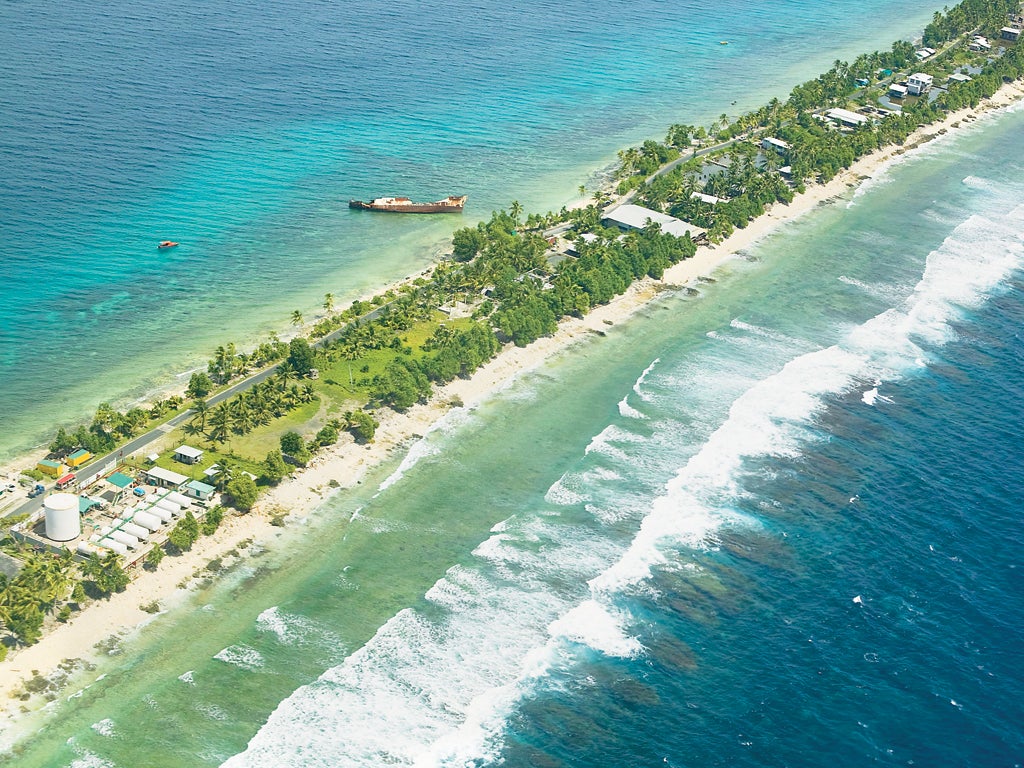This country could be wiped off the map by climate change
A new climate report sparks fears for the island nation of Tuvalu

Your support helps us to tell the story
From reproductive rights to climate change to Big Tech, The Independent is on the ground when the story is developing. Whether it's investigating the financials of Elon Musk's pro-Trump PAC or producing our latest documentary, 'The A Word', which shines a light on the American women fighting for reproductive rights, we know how important it is to parse out the facts from the messaging.
At such a critical moment in US history, we need reporters on the ground. Your donation allows us to keep sending journalists to speak to both sides of the story.
The Independent is trusted by Americans across the entire political spectrum. And unlike many other quality news outlets, we choose not to lock Americans out of our reporting and analysis with paywalls. We believe quality journalism should be available to everyone, paid for by those who can afford it.
Your support makes all the difference.The South Pacific country of Tuvalu could be wiped off the map within a few hundred years, according to a new climate report.
The deep dive into the effects and future of global warming was published by the United Nations Intergovernmental Panel on Climate Change on 9 August, ahead of the COP26 conference due to be held in Glasgow in October.
It showed that Australia has already warmed by 1.4C, and predicted that global temperatures could rise by 1.8C by 2040 and by 3.5C by the end of the century.
In terms of sea levels, the panel reported a rise of 20cm between 1901 and 2018 due to warmer waters and melting glaciers, estimating a further rise of 15-25cm by 2050.
As Tuvalu - spread across a trio of reef islands midway between Australia and Hawaii - has a highest point of just 4.5 metres above sea level, fears have increased that the country will eventually be swallowed up by rising sea levels.
Other archipelagos lying close to sea level, such as the Solomon and Marshall Islands, are also at risk of being engulfed.
The United Nations has estimated that as many as 350,000 people living in low-lying atolls will need to be relocated abroad if rising seas render their homelands uninhabitable.
“It sounds harsh, but it’s really hard to imagine some of these low lying places still existing,” Australian climate scientist Shayne McGregor told news.com.au in response to the report.
“The highest point above sea level in Tuvalu may be 4.6 metres but the general height from sea level is something like 1.2 metres, which is very low, and they don’t have a lot of defences,” he said.
Following the report, Nasa launched a new online tool enabling viewers to see how sea levels are predicted to rise in their area over the coming decades.
Join our commenting forum
Join thought-provoking conversations, follow other Independent readers and see their replies
Comments